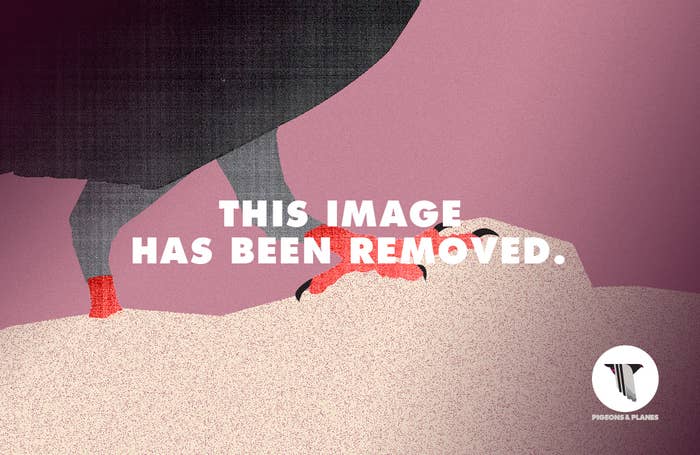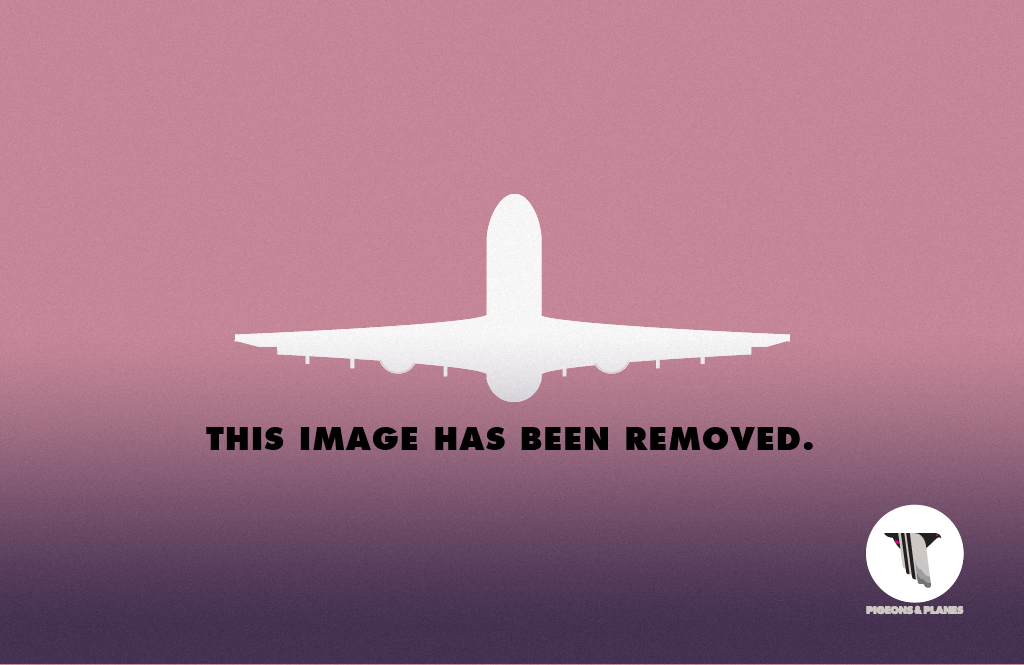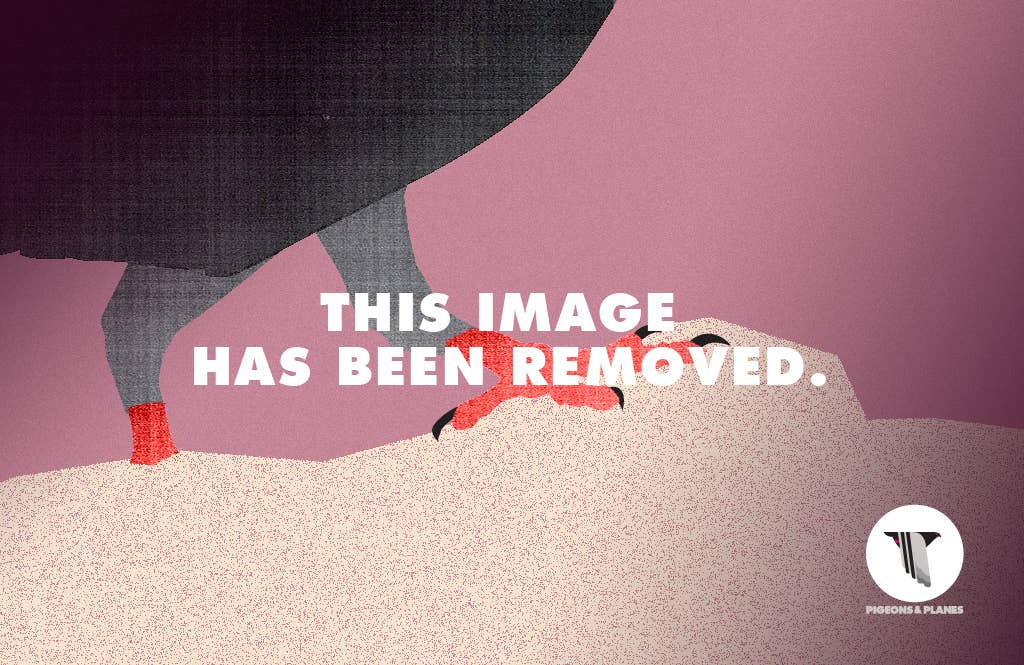1.

Thankfully not my friends.
There’s hardly a sweeter feeling known to humankind than the one you get standing in the audience while your friend just tears the roof off some random bar with a new song. Your breath catches in your throat. “We’ve known each other since kindergarten,” you whisper gleefully to the person next to you, who (for the record) doesn’t give a fuck. But you do. You care so much that when the room is dead, or people are more interested in slamming back tequila shots than listening to the music, you feel personally offended, bruised somewhere deep inside. Why don’t these people get it? These no-taste cretins wouldn’t know groundbreaking synth-pop if they’d been raised in a musicians’ commune in Sweden. Cue the indignation. Cue the disgust. They should all curl up and die.
But unfortunately sometimes that philistine, that hater of all haters, the guy who’s “just not into it,” is you. And that is a horrible, crushing feeling. Your friend has gone out on an emotional limb, has poured part of their very soul into a few power chords, or into a Vampire Weekend dubstep remix, and you hate it. You can’t stand it. And all of a sudden you are standing there dumbfounded, not sure how to react. Do you lie to them and tell them it’s “totally killing” (this is what my jazz musician friends say to each other). Do you hedge and say, “Yeah, I mean, I think it has potential.” Or do you look at them with a hydrogen bomb behind your eyes and scorch the earth of their musical ambitions with such fury that nothing will ever grow there, from now until eternity.
The answer is, predictably, “it depends.” This is friendship we’re talking about, not the rules of chess. There are grey areas, and grey areas within grey areas. Above all there is this pesky thing we call “love” hanging over the situation, making it hard for you to be 100% honest or 100% dishonest. What we can all agree on is that you want what’s best for your friend. You want to react in a way that gives them the most happiness in the long run, or causes them the least pain. You want to tell them what they “need” to hear, but you also want to keep their friendship.
So what do you say? There are some situations in which it’s easy:
1. If they don’t care AT ALL about your musical taste, it’s probably not worth it to say anything, and you can just mumble something incoherent when the topic is brought up.
2. If you hate their music because of a personal bias against screamo, but think others might like it, stay neutral with a mildly positive slant. No genre grandstanding when there’s a friend involved.
3. If you think they have talent, but hate their current shit, tell them what direction you would love to hear them go in. If you’re careful you can partially sidestep the issue with legitimate excitement about the future.
But here is where the positivity well runs dry. There are times where there is no silver lining, times when you hate your friend’s band, think it’s never going to get better, and have the sneaking suspicion that if you were strong enough, if you flat-out told them how you feel, they might take that to heart and pursue another creative avenue. But you’re afraid their heart would break, and your friendship would become a thing of the past, sacrificed on the altar of honesty. At that point what you say is your call, and all depends on whether you believe you’re the right person to give it to them straight. Sometimes it isn’t your place, but if it is, if you’re the one who should be honest, you need to suck it up and be a true friend, and God be with you.
Luckily for those of us who have panic attacks about direct confrontation, it’s not always about what you say to their face, but also what you do, and there are a million little passive-aggressive actions you can take to subtly let them know your love for them doesn’t extend to their band. We put together a small guide of how to act appropriately when confronted with various situations, a Miss Manners guide if you will.
3.

Mind Your Manners
Q: How many concerts am I obligated to attend?
A: Wait, they are actually booked somewhere? The first gig is definitely going to be an event in your friend group and your absence will be noted. People never forget. It’s also an infinitely shittier feeling to be on stage and have none of your friends show up than posting a song to your Soundcloud and not getting that many plays. Their first concert is not the place to make your stand, especially because it means they definitely aren’t showing up for your slam poetry reading. But after that you’re pretty much off the hook, after that it’s more about the music than a public show of friendship.
Q: Do I have to like or share their music on social media?
A: It’s common courtesy to “like” their Facebook page. It will help them in whatever Machiavellian calculation Facebook makes on the net worth of their existence. “But it might negatively affect my personal brand,” you protest. If your personal brand is so meticulously curated that one stray “like” on your private Facebook account will throw it out of balance, then maybe you’re too far gone already. Maybe you’re more machine than man. But do you have to share or tweet their new songs? Certainly not, come on, haven’t you heard how important personal brands are these days?
Q: Do I have to fund their Kickstarter?
A: I’m assuming this Kickstarter is going to fund a professional recording session for their debut album. That’s truly a dream for a lot of musicians, and one of those milestones that makes you feel like you’ve given music a good shot even if you fail. It’s a little thing they’ll be able to hold onto their entire life, even if they have left their dream of being a full-time musician far behind. So though you personally hate their music, if you have the disposable income to contribute $10 or $20 towards their Kickstarter, it really is a nice thing to do. But if it’s their second Kickstarter, you can go ahead and ignore that email.
Q: What do I do when our mutual friend asks me if I like the band?
A: Yikes. If you haven’t told your friend to their face you don’t really like their music you probably shouldn’t start gossiping about it to other people. But we’re all human, right? And sometimes it can be cathartic to share a completely honest opinion about your friend’s art with someone else who is confronted with the same scenario you are. In general if you are legitimately interested in knowing how your other friend is relating to the music, and in having a discussion about that, it’s probably not that terrible. But if your friend just wants to have a nice long shit-talking session about how much the music sucks, it’s probably going to make you feel like a dick later.
But enough. I can talk all day about what we “should” do when confronted with this situation, but the truth is none of us know how we’ll react until we’re thrown into the ring and end up staring down the friendship equivalent of Vitali Klitschko, PhD. To that end, what follows is a collection of anecdotes about how other fallible humans have tried to deal with this situation.
5.

Confessionals
These are the answers we received when we asked a few anonymous associates what they say when they hate their friend’s music.
The Straight-Up:
“I used to be worried about how friends would react when I tell them that I’m not feeling their music, but I’ve come to realize that it’s more helpful to just be honest. So many artists have friends who will co-sign everything, but this ends up hurting more than it helps. I think the key is to just be completely honest and give constructive criticism. If the shit sucks, or sucks in my opinion, I’ll let them know (in nicer words). I always tell new artists that they need to find at least one friend who will be brutally honest. If all your friends are telling you that everything you do is amazing, your perception of reality is going to be skewed. Keep in mind that people’s music is important to them and be gentle about it, but don’t hold back too much.”
The Brush-Off:
“I always just say ‘hey, I’ll see what I can do.'”
The Waited-Too-Long:
“I had a friend in high school that was a really talented musician – he played shows around our city and even put together a small EP of shows to sell. For the most part, I liked his solo stuff. It was a little John Mayer-ish for me, but it was 2005 so that sound was really popular and it did well for him. On the side though, he was also in a band with a few friends and their music was terrible. Like just cheesy pop-rock that tried way too hard to take itself seriously and it just didn’t hold up. But for a while, I never told him. I went to the shows, I listened to the songs they wrote enthusiastically – I really tried to let the music grow on me. Unfortunately it didn’t, so I finally just bit the bullet and told him. He kind of laughed and said “Yea, I know. We’re not good. Also, you’re an asshole for not telling me sooner.” It was a relief he could laugh about it too, but it made me realize that when it comes to someone you care about as a friend, no matter what they are doing it’s always best to be honest. Even if you hurt their feelings at first, they’ll benefit more from you voicing your opinion than them being coddled.”
The Too-Nice:
“I get really scared about it, since a lot of people have starting hitting me up about it since I’ve started studying music journalism at University. A couple of people have asked me to review or promote their band, and considering I never really talked to any of them that much I always found it really weird. Most of the time I fake enthusiasm to keep them happy for a while, followed by deleting them as friends. I don’t have the heart to them that they suck if I know them in any regard, so I guess I’m guilty of being the worst kind of person.”
The Manage-Them-Anyway:
“Once upon a time, when I wanted to get my managerial feet wet, I started working with a friend from college who was a part of a bluegrass band. We agreed at the time that it was sort of an odd fit–I being a lifelong hip-hop adherent, he and his cohorts a group far more familiar with Willie Nelson than Willie D–but we all went along with it in the name of adventure and the misguided belief that my knowledge of the blogosphere would lead to internet fame and, shortly thereafter, modest mountains of gold bullion. The reality of the situation: I sort of hate bluegrass. It’s not that I don’t respect its creators and the degree of difficulty involved in performing much of the genre’s canon and it’s not that the band itself was bad. Far from it: All the members were classically trained musicians who’d found achievement in other genres and decided to follow their hearts. Simply put, I was not moved by the music, from sound to subject matter.
Or so I thought.
One way to combat hating the music of a friend’s band is to actually educate yourself on the genre, its history, and its greats. I never became a bluegrass scholar, but I learned to love and respect–not just tolerate–the original material and covers the band played by diving down into the depths of Wikipedia and Spotify. As KRS-One once said, ‘you must learn.’ I think that’s a sentiment that would ring true with my friends.”

